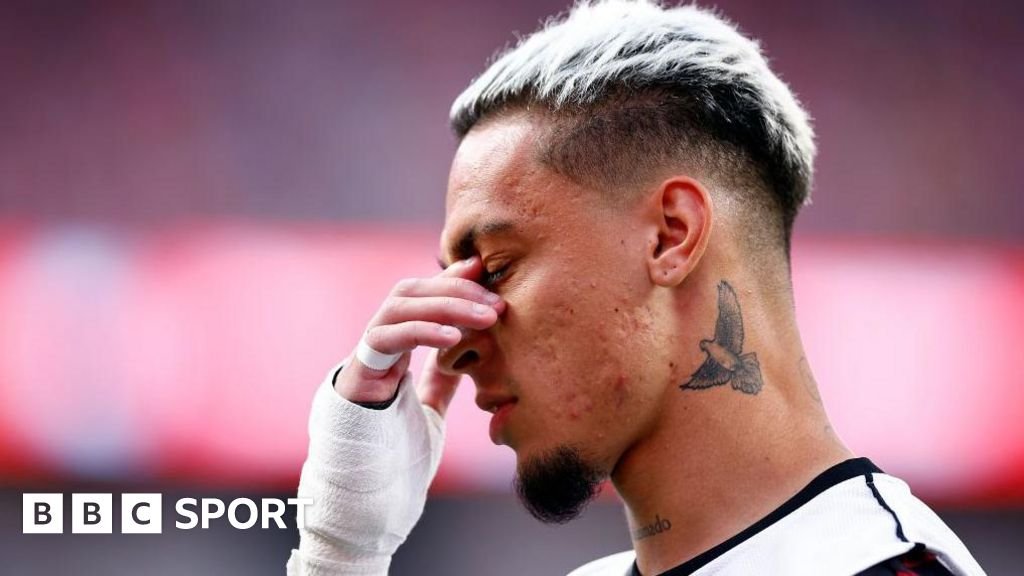Antony: Man Utd forward on growing up in Brazil favelas and targets under Erik ten Hag

Manchester United winger Antony has explained why a traumatic upbringing in Brazil means critics who condemn his footballing abilities will not “write my story”.
United made Antony the second-most expensive player in their history behind France World Cup winner Paul Pogba when they paid Ajax £82m for him in 2022.
The 24-year-old has rarely come close to justifying that fee and has scored just five goals and claimed three assists in 54 Premier League appearances.
Antony ended last season on the bench and was an unused substitute in the 2-1 FA Cup final victory over Manchester City at Wembley in May.
However, on the eve of this weekend’s Manchester derby rematch in the Community Shield, he offered a revealing insight into his tough background in a Sao Paulo favela that not all his friends were lucky enough to escape from.
“It’s difficult for me to talk about my background,” Antony told reporters, answering in his native Portuguese to questions posed in English.
“It’s not by chance I have the favela where I grew up tattooed across my back and always play with ‘favela’ written on my boots. The favela is always with me.
“I’ll never let anyone else write my story or let people put me down as I genuinely know what it’s like to be at the bottom.
“There were times when I didn’t have boots to play football in, times when there wasn’t enough to eat. I didn’t have a bedroom – I slept on the sofa in the living room. My house would flood when it rained heavily.
“I saw a lot of friends go down another path and some of them lost their lives. I know what I went through; I know what my mother, father, brother and sister suffered together with me.”
Favela is the term used for densely populated areas on the outskirts of Brazilian cities, likened to slums or shanty towns. They are characterised by lower life expectancy, higher infant mortality rates, lack of education and low literacy levels.
It is estimated about 6% of Brazil’s population, more than 11 million people, live in favelas.
